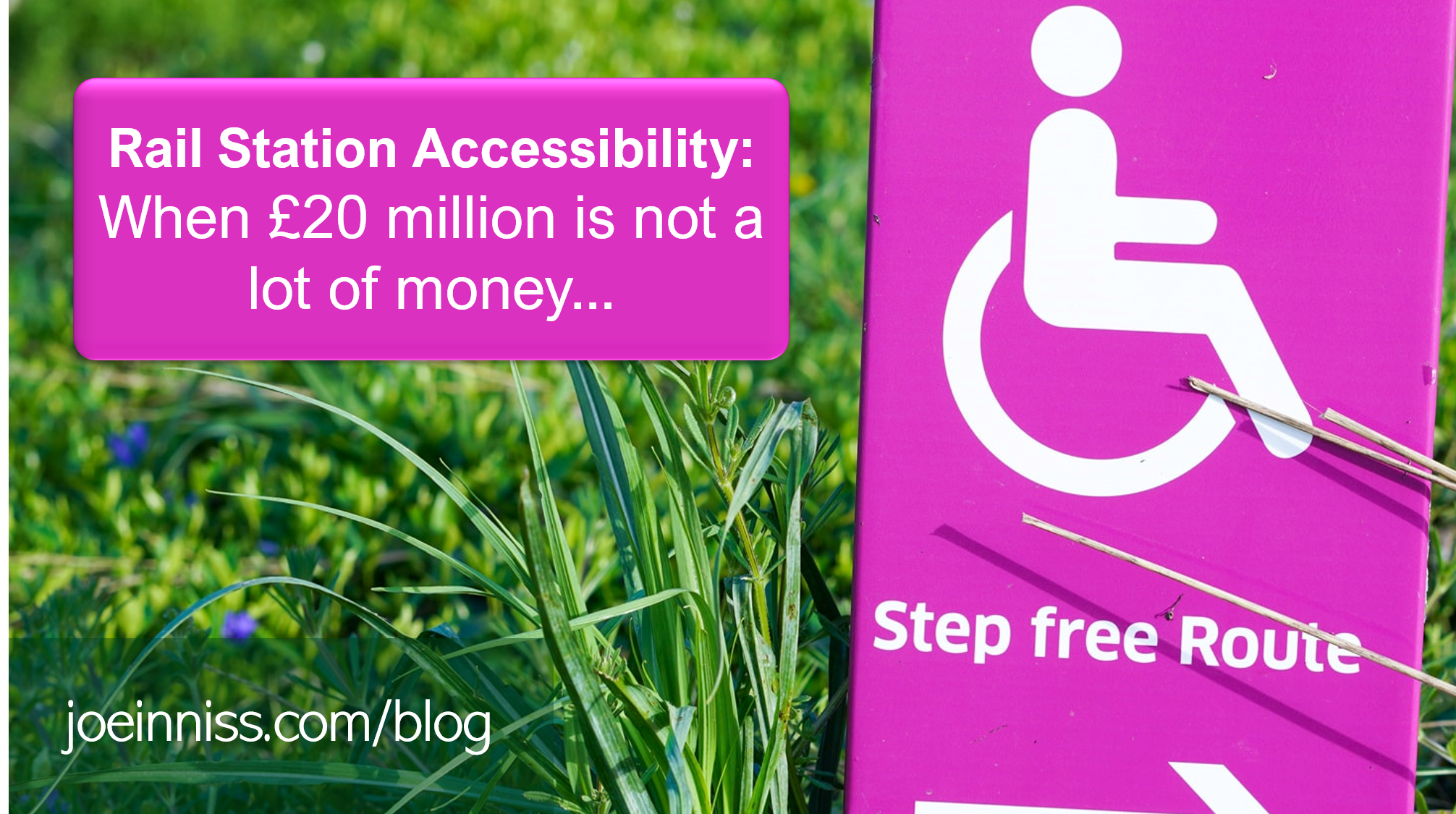Further- The things that make stations more accessible for disabled users tend to make the stations better for all users.
For example: Lift access to platforms is fundamental for wheel chair users. Lifts are also safer and more convenient for passengers with big suitcases. And additional lifts provide additional overall capacity.
So is £20 million enough additional investment in accessibility?
It’s not clear from network rail reporting how much is currently spent on station accessibility.
If we look at £20 million in the context of network rails recent £3,577 million in annual operational costs, this doesn’t seem a lot.
Network rail only operate 20 out of the 2500(ish) UK train stations. Point being we can conclude that £20 million is a relatively modest funding boost.
If we divide £20M between the 124 stations allocated thats roughly £160k per station- which in railway terms is not a lot: For example, in a recent estimate the “Cost for the design, supply, and installation of the lift mechanisms and enclosure themselves would be in the region of £750,000 to £1.2 million.”
That would again indicate that £20 million is a relatively modest funding boost.
What can we conclude from all this?
I don’t doubt that this funding boost has good intentions. And any increase in funding is a good thing overall.
I believe that it is fair to judge the success of a train station on how accessible it is for the least mobile in society.
Generally, UK train stations could be a lot better and I would argue that £20 million is inadequate to make a big difference. And for me, a big difference is exactly what is required.
What else have I missed?
I’d love to hear your thoughts on all of this. Please do leave a comment below, or message me directly.
P.S.
If you enjoyed this article, the best compliment you could give me would be to share it with someone else who might like it. And as ever, if you think I might be able to help your organisation, please do get in touch!


